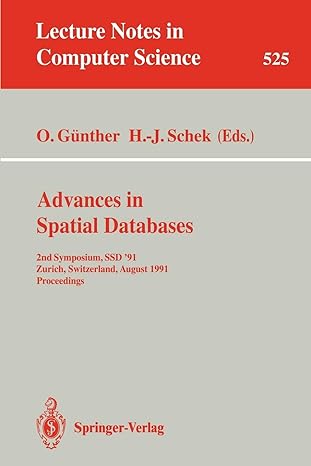Question
The programming language Python has some really nice functions for dealing with files. One of them is called readlines and it reads the lines of
The programming language Python has some really nice functions for dealing with files. One of them is called readlines and it reads the lines of the files into an array. For this projcet you will be implementing readlines in C.
Additional Details
For this assignment you will be creating a function and not an entire program.
The function your create should have the following signature:
void read_lines(FILE* fp, char*** lines, int* num_lines)?
This function should read all of the lines in the file pointed to by fp and
Set each row of lines to contain one line of the file
Set num_lines to be equal to the number of lines that were in the file
If the file is empty lines should be set to NULL and num_lines to 0
You should only submit read_lines.c and read_lines.h
I will provide main.c and the Makefile
Your code must compile using this Makefile and main.c
You cannot edit main.c
While you only have to write read_lines you can write as many other functions as you want
Hints
I highly recommend making more functions than just read_lines for solving this problem.
For example a function that reads a single line from the file
Examples
User input has been underlined to help you differentiate what is user input and what is program output.
Example 1
./read_lines.out Makefile
read_lines.out: read_lines.o main.o gcc -g -Wall -Werror -o read_lines.out read_lines.o main.o main.o: main.c read_lines.h gcc -g -Wall -Werror -c -o main.o main.c read_lines.o: read_lines.c read_lines.c gcc -g -Wall -Werror -c -o read_lines.o read_lines.c clean: rm -f *.out *.o
main.c content:
#include#include #include "read_lines.h" void print_lines(char** lines, int num_lines){ int i; for(i = 0 ; i < num_lines; ++i){ printf("%d. %s", i+1, lines[i]); } } void free_lines(char** lines, int num_lines){ int i; for(i = 0 ; i < num_lines; ++i){ free(lines[i]); } if(lines != NULL && num_lines > 0){ free(lines); } } FILE* validate_input(int argc, char* argv[]){ FILE* fp = NULL; if(argc < 2){ printf("Not enough arguments entered. Ending program. "); exit(0); } else if(argc > 2){ printf("Too many arguments entered. Ending program. "); exit(0); } fp = fopen(argv[1], "r"); if(fp == NULL){ printf("Unable to open file: %s Ending program. ", argv[1]); exit(0); } return fp; } int main(int argc, char* argv[]){ char** lines = NULL; int num_lines = 0; FILE* fp = validate_input(argc, argv); read_lines(fp, &lines, &num_lines); print_lines(lines, num_lines); free_lines(lines, num_lines); fclose(fp); return 0; }
Step by Step Solution
There are 3 Steps involved in it
Step: 1

Get Instant Access to Expert-Tailored Solutions
See step-by-step solutions with expert insights and AI powered tools for academic success
Step: 2

Step: 3

Ace Your Homework with AI
Get the answers you need in no time with our AI-driven, step-by-step assistance
Get Started


